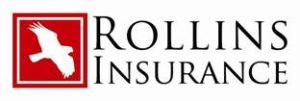 Health care costs are on the rise, and finding affordable health insurance can be a challenge. However, there are several strategies you can employ to save money on health insurance without compromising your coverage. In this comprehensive guide, we will explore various tips and techniques to help you lower your health insurance expenses. From understanding the different types of plans to negotiating bills and utilizing cost-saving programs, we’ve got you covered. So let’s dive in and discover how to save money on health insurance.
Health care costs are on the rise, and finding affordable health insurance can be a challenge. However, there are several strategies you can employ to save money on health insurance without compromising your coverage. In this comprehensive guide, we will explore various tips and techniques to help you lower your health insurance expenses. From understanding the different types of plans to negotiating bills and utilizing cost-saving programs, we’ve got you covered. So let’s dive in and discover how to save money on health insurance.
Understanding Health Insurance Options
When it comes to health insurance, it’s important to understand the different options available to you. Whether you’re shopping for coverage through an employer-sponsored plan, a marketplace, or considering other alternatives, being informed is the first step towards saving money. Let’s explore some key aspects of health insurance options:
Employer-Sponsored Health Insurance
One of the most common ways individuals obtain health insurance is through their employer. Many employers offer health insurance coverage as part of their employee benefits package. Typically, employers contribute a portion of the premium costs, making it an attractive option for employees. To find out more about the health insurance plans available through your employer, reach out to your supervisor or human resources department.
Health Insurance Marketplaces
Health insurance marketplaces, such as Healthcare.gov, provide a platform for individuals and families to compare and purchase health insurance plans. These marketplaces offer a range of options, allowing consumers to find coverage that fits their needs and budget. By utilizing these marketplaces, you can easily compare premiums, deductibles, and copays across multiple insurance companies, helping you make an informed decision.
Medicaid and Medicare
Medicaid is a health insurance program designed to provide coverage for low-income individuals and families. Eligibility for Medicaid varies depending on your state of residence. On the other hand, Medicare is a federally-run program that provides health coverage for individuals aged 65 and older, as well as certain individuals with disabilities. If you meet the eligibility criteria for Medicaid or Medicare, these programs can significantly reduce your health insurance costs.
Outside Marketplace Options
While health insurance marketplaces offer a wide range of options, it’s worth exploring alternatives outside of the marketplace as well. Some insurance brokers can help you find plans that may not be available on the marketplace. However, it’s important to ensure that the broker you work with is licensed and reputable. Additionally, be cautious when exploring health insurance options online, as there are often misleading or inadequate plans that may not provide adequate coverage.
Tips for Saving on Health Insurance
Now that we’ve covered the main health insurance options, let’s delve into some practical tips and strategies for saving money on your health insurance premiums and related expenses. By implementing these strategies, you can make your health insurance more affordable and alleviate some of the financial burdens associated with healthcare.
Look Beyond Monthly Premiums
When comparing health insurance plans, it’s essential to consider more than just the monthly premiums. While a plan with low monthly premiums may seem appealing at first, it may come with higher deductibles and copays. On the other hand, plans with higher premiums may offer lower out-of-pocket costs. Depending on your healthcare needs, it may be more cost-effective to opt for a higher premium plan that provides better coverage for services you frequently utilize.
Stay In-Network
To avoid unexpected medical bills, it’s crucial to stay within your health insurance provider’s network. Providers within the network have negotiated fee agreements with the insurance company, resulting in lower costs for you. Before selecting a health insurance plan, make sure your preferred doctors, hospitals, and pharmacies are in-network. This way, you can receive the care you need without incurring hefty out-of-network charges.
Take Advantage of Premium Tax Credits
If you’re purchasing health insurance through a marketplace, you may be eligible for premium tax credits. These credits help lower your monthly premium payments, making health insurance more affordable. The amount of the tax credit is based on your estimated household income for the coverage year. To determine if you qualify for premium tax credits, apply through the marketplace and explore your options. This can significantly reduce the financial burden of health insurance premiums.
Consider Health Savings Accounts (HSAs) and Flexible Spending Accounts (FSAs)
Health savings accounts (HSAs) and flexible spending accounts (FSAs) are tax-advantaged accounts that allow you to set aside pre-tax income for qualified medical expenses. HSAs are available to individuals enrolled in high-deductible health plans, while FSAs are typically offered through employer-sponsored plans. By contributing to these accounts, you can save money on eligible healthcare expenses, such as deductibles, copays, and prescription medications.
Negotiate Medical Bills
If you receive a medical bill that you believe is excessive, it’s worth trying to negotiate with the hospital or healthcare provider. Start by researching the average cost of the medical procedure or service you received. Armed with this information, approach the billing department and inquire about reducing the cost or exploring payment plans. In some cases, you may qualify for financial assistance programs that can help alleviate the financial burden.
Utilize Urgent Care Clinics and Retail Clinics
For non-emergency medical needs, consider visiting urgent care clinics or retail clinics instead of the emergency room. Urgent care clinics provide treatment for minor illnesses and injuries and are often more affordable than emergency room visits. Retail clinics, located in pharmacies and grocery stores, offer convenient and cost-effective healthcare services. By utilizing these alternatives, you can save both time and money while receiving the care you need.
Explore Prescription Medication Savings
Prescription medications can be a significant expense for many individuals. To save on medication costs, consider utilizing pharmacy discount programs, online pharmacies, and generic alternatives. Some websites offer free coupons and discounts on medications, helping you obtain your prescriptions at a reduced cost. Additionally, discussing medication costs with your doctor or pharmacist can lead to finding more affordable options or enrolling in patient assistance programs offered by pharmaceutical companies.
Stay Proactive and Informed
Lastly, staying proactive and informed about your health insurance plan can help you save money in the long run. Regularly review your plan’s coverage and benefits to ensure they align with your needs. Keep track of any changes in your income or household size and update the marketplace or your insurance provider accordingly. By staying on top of your health insurance, you can make informed decisions and avoid unexpected costs.
Health insurance costs can be a significant financial burden, but by implementing the strategies outlined in this guide, you can save money and make your health insurance more affordable. From understanding your options to taking advantage of tax credits and exploring alternative care options, there are numerous ways to reduce healthcare expenses. Remember to review your plan regularly, stay in-network, and be proactive in managing your health insurance. With these tips in mind, you can navigate the complex world of health insurance and find a plan that fits your needs and budget.
Contact us (859-781-7283) for more information or get a free quote!
—
 About Rollins Insurance
About Rollins Insurance
Rollins Insurance is an independent insurance agency providing our clients the best prices with the most coverage possible since 2008. We represent multiple A-rated insurance companies to make sure we deliver the most competitive rate packages to our clients in Kentucky and Ohio. We find that most people are under-insured and over-paying when we meet them. We love what we do and our primary business is Personal Auto, Homeowners, and Life and Health insurance. We are a family-owned and managed business that specializes in providing needs-based insurance services.
>> Learn More About Us and Our Staff
